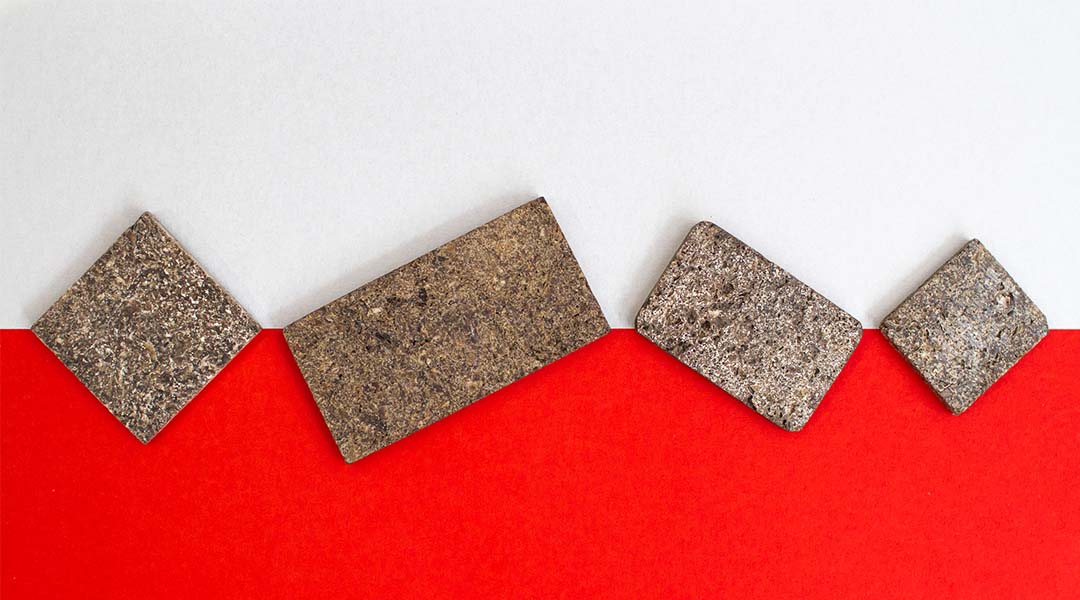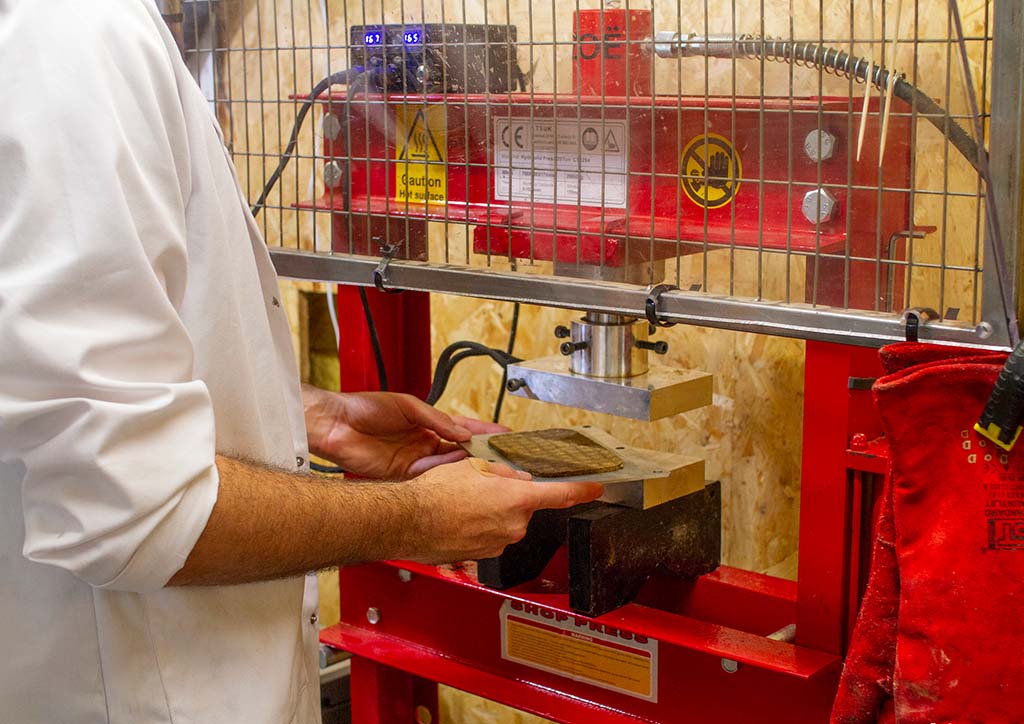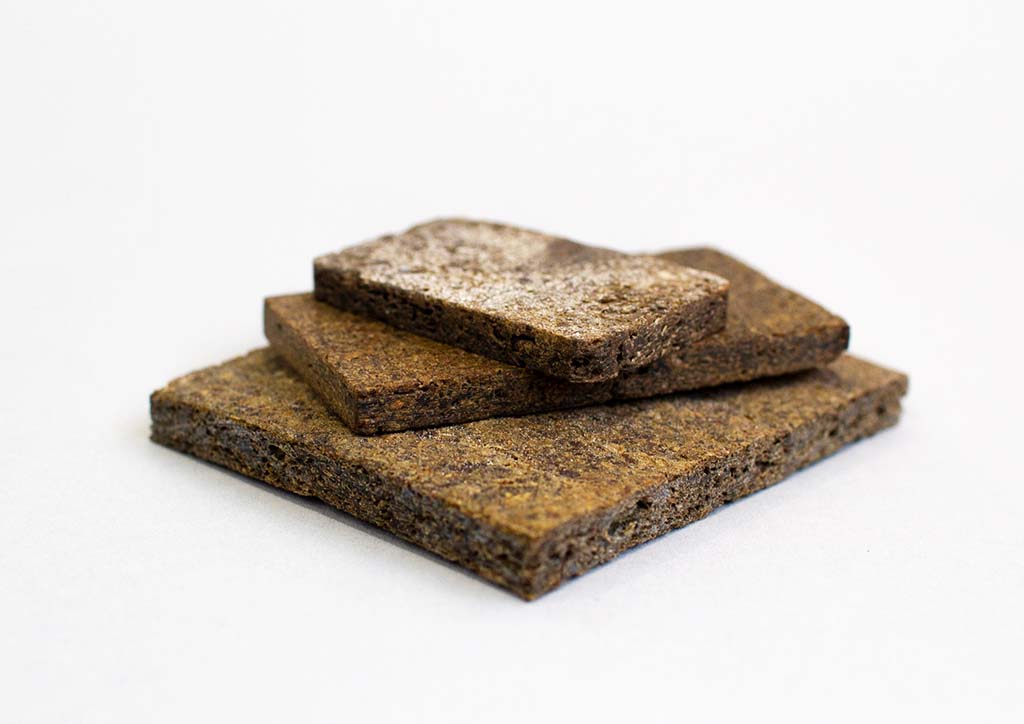
A new innovative and sustainable building material made from potato waste
Sustainability is the core principle Chip[s] Board was founded on, and it upholds the driving force behind the need to improve the world within. The company’s philosophy sustains a circular economy in a waste (byproduct) management and material production that has the faculty to create a new ecological model by utilizing abundant resources, rather than incessantly processing virgin materials. Chip[s] Board combines research with innovation in order to maximize these reserves that are not being used, therefore, improving the well-being of the planet as well.
Rowan Minkley and Robert Nicoll, the co-founders of Chip[s] Board, have discovered the material through waves of trial and error in the course of their third year at the Kingston University in London. Rowan focused on the research on vegetable waste in the creation of paper and coffee waste in plastic production. On the other hand, Rob looked into potatoes and their faculty to create bioplastic. The use of potato proved most favorable, since it contains a broader set of ingredients, as well as the abundance of chip manufacturing for peel and waste. The entire research went from using whole potatoes to using the offcuts from restaurants. A sheet material was afterwards formulated by the new co-founder Gregory Cooper, and is currently being developed for industrial production.

Chip[s] Board’s latest building material, which is made entirely from potato waste, is a biomaterial that resembles medium density fiberboard. The vegetable rich in starch may be utilized in various manners, such as in the creation of biodegradable plastic. The company firmly believes in “finding value where others see waste,” and is dedicated to conceptualizing and developing materials derived from industrial byproducts to reduce environmental damage. The present-day manufacturing of plastic and particulate boards require toxic chemicals, like known carcinogen and urea-formaldehyde, which cause extreme damage to people and the environment. Chip[s] Board addresses these issues by employing low water use and zero production waste in the creation of the said material. Moreover, it does not contain any resin or harmful chemicals, thus, making it a healthier choice.
Potato waste, like discarded pulps and peels, is brought to Chip[s] Board to be treated and completed without the use of additives. The process results in a chemical-free, vigorous material that is recognized to be more resistant than water. It can, contrariwise, degenerate in a composing facility. The building material may be used a sheet material for a host of both provisional and permanent architectural or interior applications. Its capacity can be further explored by generating products, and it can be cast into ready-to-use custom forms, particularly, decomposable cutlery.

One of the many tests the young co-founders are doing represents their intention to make their work conclusively industry-viable. Also evident is the goal to upscale production in order for the company to begin replacing toxic industry counterparts. If the envisioned production broadens in this manner, the company also plans to be sustainable in the use of all its resources, including renewable energy and grey water for production.
Looking beyond the material itself, Chip[s] Board is evocative of a strong circular design ethos. Minkley and Nicoll’s work with potato waste and its change into a feasible and flexible material appears to be only the beginning of a promising, sustainable practice. Besides the actuation of this innovative building material, the duo’s consistent work in transforming a university venture into an industry essential through the use of environmentally sensible practices and systems continues to stir those within and outside the design community. ![]()
READ MORE: The interplay of colors inside Philipp Mohr’s faithful renovation of a Le Corbusier apartment


